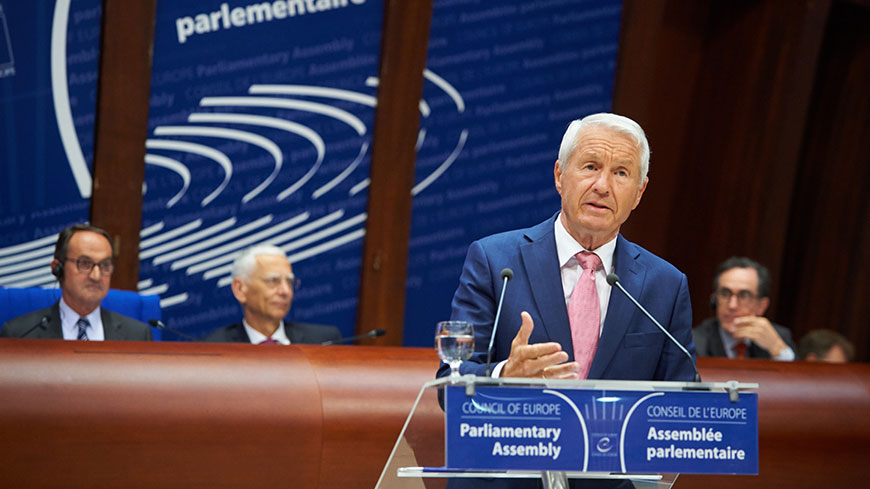Council of Europe Secretary General Thorbjørn Jagland replied to questions from PACE members in a question and answer session during the Assembly’s Spring part-session.
During this exchange, parliamentarians asked Mr Jagland what he could do concerning allegations of corruption inside the PACE. He replied that for the Organisation as a whole, there was already a very solid system in place to investigate any such allegations, including an internal and external audit procedure. He added that while it was up to PACE to decide what to do, he had already written a letter urging the Assembly to hold an independent investigation. He underlined that, as the body that elected the Secretary General and also judges to the European Court of Human Rights, it was essential that PACE should be seen to be acting with “one hundred per cent integrity”.
In response to a question on teaching staff dismissed from universities in the wake of the attempted coup in Turkey, Mr Jagland expressed his hope that the special Commission set up to hear complaints in this regard should begin its work immediately. He emphasised that the European Court of Human Rights could not deal directly with complainants, who should first seek a domestic legal remedy. However, should the Commission not work in an independent way, the Court could still intervene. In a similar vein, the Secretary General explained that those arrested and imprisoned in connection with the attempted coup should first pursue the domestic legal avenue, using the European Court only as a last resort when all domestic remedies had been exhausted without success.
Concerning the monitoring of human rights in Crimea, Mr Jagland stressed that this issue was at the top of his agenda. He said it was essential that there were no grey zones for human rights protection in Europe. He highlighted what he described as “alarming reports” concerning the condition of prisoners held in Crimea. He said the Organisation should insist on sending the Committee for the Prevention of Torture (CPT) to Crimea to investigate prison conditions there.
Regarding the situation in Hungary, the Secretary General said he just met with the Ministry of Justice of Hungary and discussed a number of issues, in particular with regard to academic freedom, the draft law concerning the activities of non-governmental organisations (NGOs) and detention centres for migrants and refugees.
Asked about the trafficking of migrants across the Mediterranean, the Secretary General explained that while the Council of Europe had no authority regarding national borders, it did have a mandate to ensure the humane treatment and safety of migrants and refugees who arrived in Europe, especially unaccompanied minors, who were at most risk of exploitation by traffickers and others.
In relation to a question on the treatment of LGBT people in Chechnya, Mr Jagland said the Organisation could not tolerate any discrimination or violence against this group. He drew attention to his recently published annual report, which highlighted populism as a major threat, in part because of its actions against minorities, which were often taken in order to divert attention from other issues. He described the targeting of LGBT people as the worst kind of populism.


